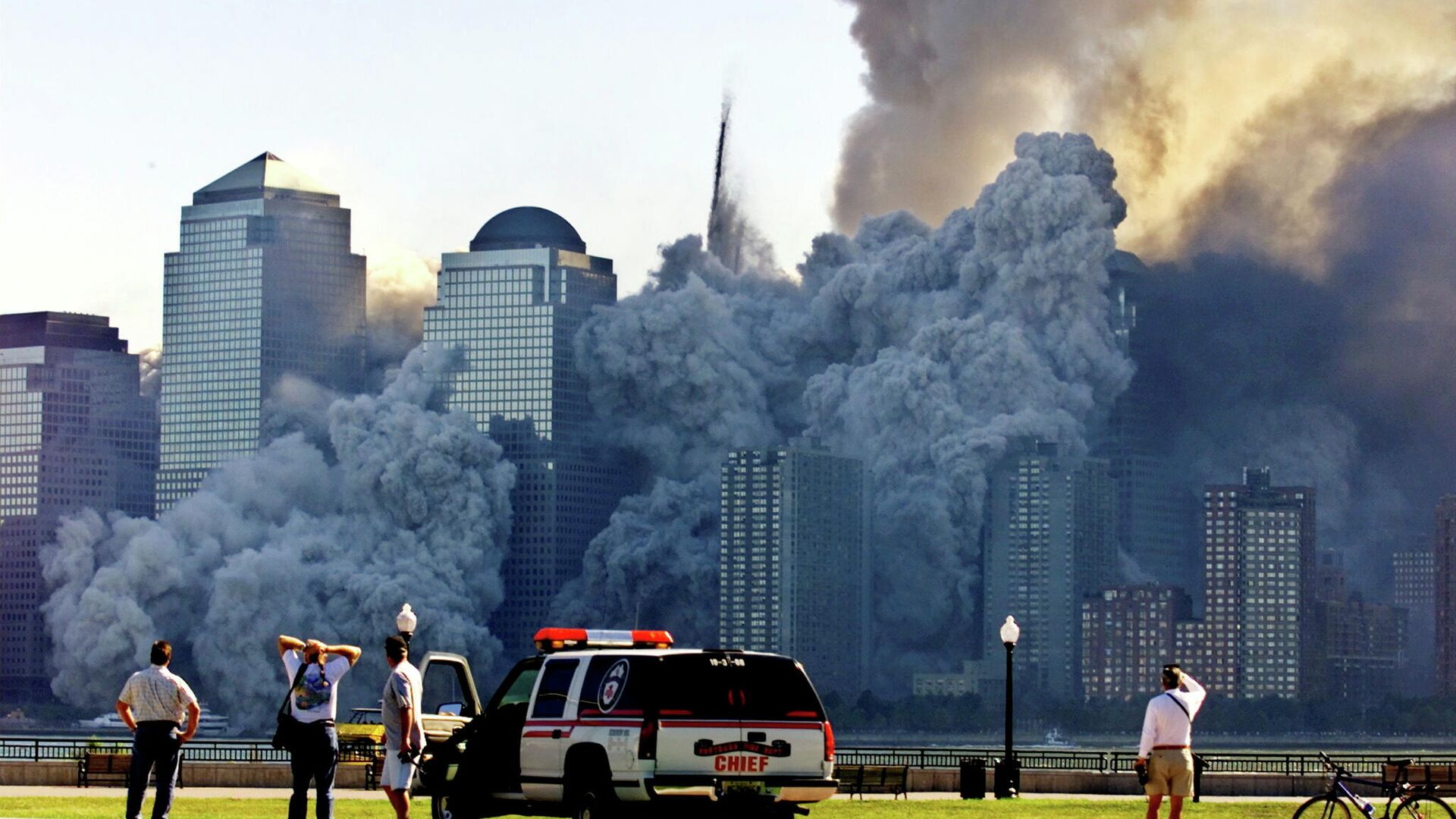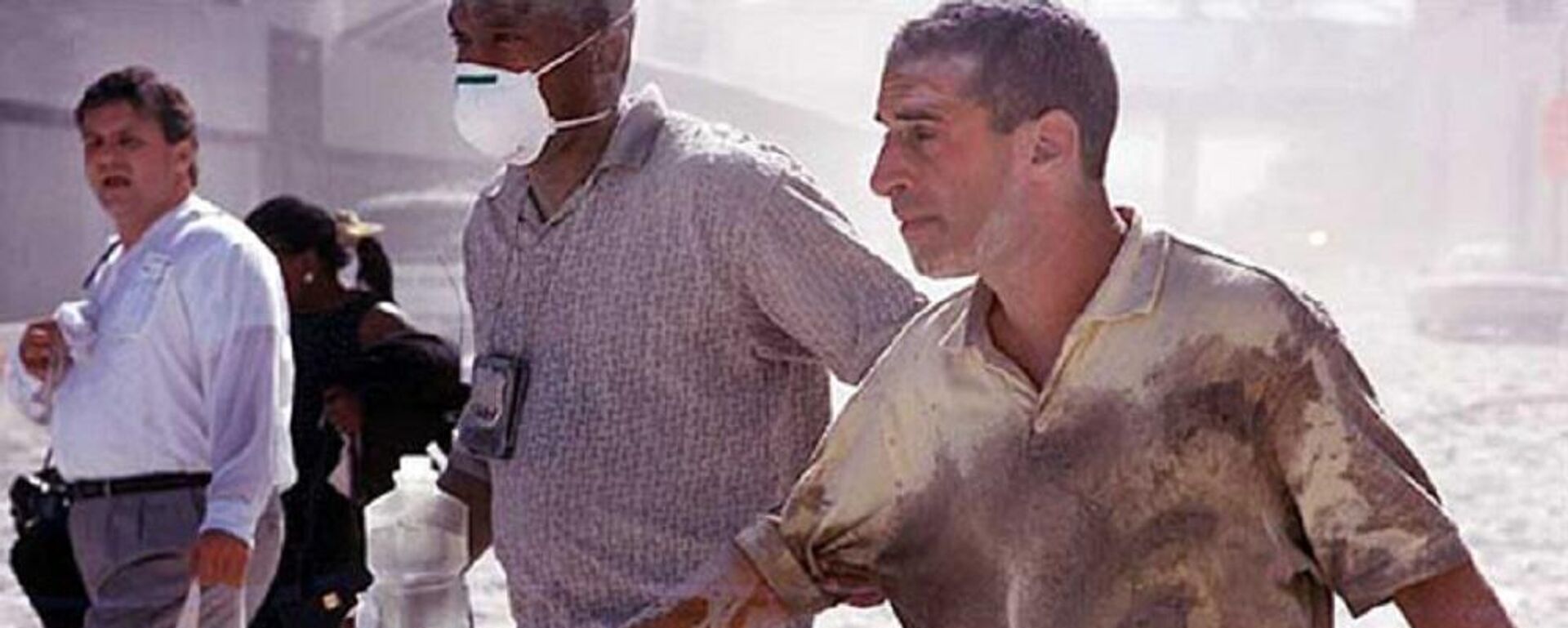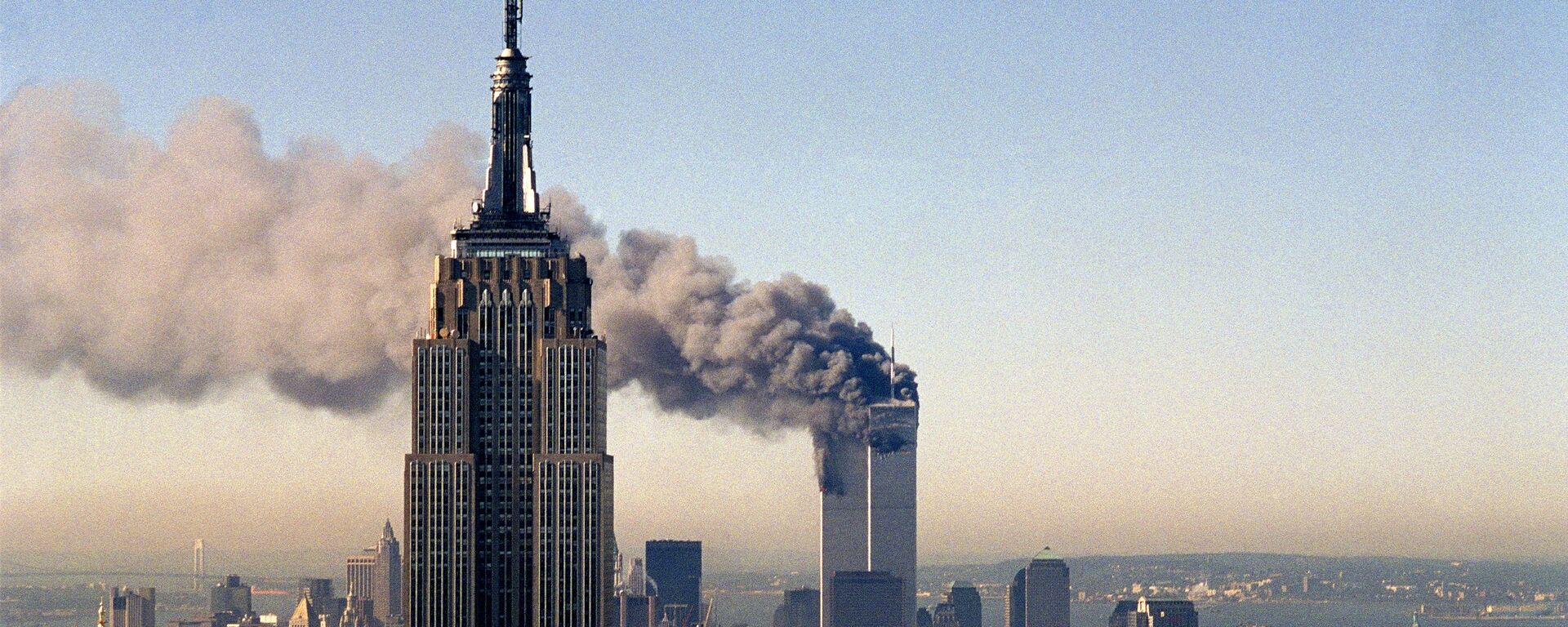Ex-Mossad Chief Recounts How & Why 9/11 Changed West's Security Policy, Pushing it Closer to Israel
07:22 GMT 11.09.2021 (Updated: 20:46 GMT 19.10.2022)

© REUTERS / RAY STUBBLEBINE
Subscribe
Shortly after the assaults, the delegations of many Western countries visited Israel to learn how it secures its airport. They also wanted to find out how to classify people and how to spot those who could potentially present a danger to society.
Danny Yatom, the former head of Israel's spy agency, the Mossad, remembers well that tragic Tuesday, 11 September 2001, when two planes crashed into the World Trade Center in New York. A third plane hit a part of the Pentagon, the headquarters of the US Department of Defence.
The last one -- with which the al-Qaeda terrorists planned to hit the White House -- fell in an open field following a clash between the passengers of the aircraft and the extremists.
At that time, Yatom had already left the Mossad but he was still an important figure within Israel's security apparatus and someone who had been linked to key players of Israeli politics.
"I remember I was sitting in my office. When I saw one airplane colliding into the World Trade Center, I immediately said that that was not an accident. It was a terror attack. Initially, some people were doubtful. When the second plane hit the building, everyone realised that I was right."
Shocker
The events of 11 September didn't catch Yatom by surprise.
With an impressive military career under his belt, and with in-depth knowledge about the various terrorist groups and their capabilities, he knew well of the hazards extremists organisations posed.
But the scope of the attack and the fact that it was carried out on American soil was nevertheless a shocker. It was just as surprising for the US.
"From their own investigation, the Americans came to the conclusion that there were some hints that indicated that the terrorists would be carrying out an attack against US targets. But nobody thought that the assault would be carried out in the heart of the US. The Americans thought they were immune to such attacks and that nobody would dare to do so."
The 9/11 attacks claimed the lives of nearly 3,000 people and 25,000 being injured, causing $2 trillion in damage.
Advice Needed
When the dust settled, the US started to analyse what went wrong. With that came a change in policy.
"The tragedy changed America's offensive and defensive approaches. It changed their security procedures. They became more meticulous in checking travellers, started to rely more on technology and manometer and implemented many regulations on what was banned or permissible on a flight."
What it also changed was the US and many other states' attitude towards Israel.
Shortly after he left the Mossad, Yatom became a politician and saw multiple delegations from all over the world coming to Israel in search for advice.
"They were interested in learning how we secure our airport [believed to be one of the safest in the world - ed.]. They were curious to see how we treat those, who board a plane, how we classify people and how we determine who can present a danger and who cannot," explained the former chief spy.
Now, twenty years after the notorious attacks, he says the world hasn't become safer but politicians and the public have become more aware of the dangers posed by radicals. What they also understood is that in order to maintain their countries' security they needed to make sure that stability was also available in other parts of the world.

‘Thought I Left My Daughter With No Father’: 9/11 Survivor Who Opted to Help Rescuers in Twin Towers
11 September 2021, 05:00 GMT
This was used as a pretext by many Western states to launch military campaigns in such countries as Syria, Iraq and Afghanistan.
They claimed they wanted to curb terror, but as extremists keep rearing their heads in many of those states, while the price for their endeavour continues to claim lives and take a financial toll, some have realised they would be better off without boots on the ground.
The US has already left Afghanistan; its last troops left the war-torn country at the end of August. Washington is also planning to take a similar step in Iraq, vowing to withdraw its forces by the end of this year.
Yatom understands the reasons behind their decision but warns that the battle against extremists is far from over.
"These terrorist organisations don't want to accept us [the West]. They don't want to reconcile. Their aim is to annihilate us. And we should stick to our own aim -- continue our efforts to stop them".
*Al-Qaeda is a terrorist group banned in Russia and many other countries.


